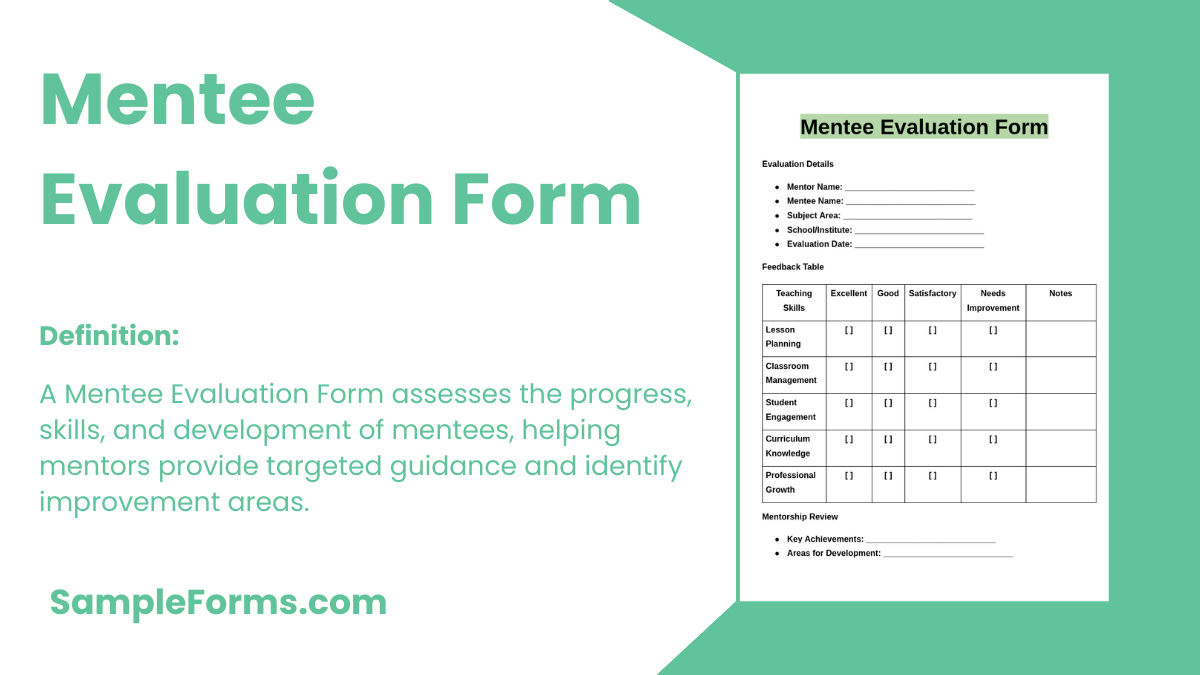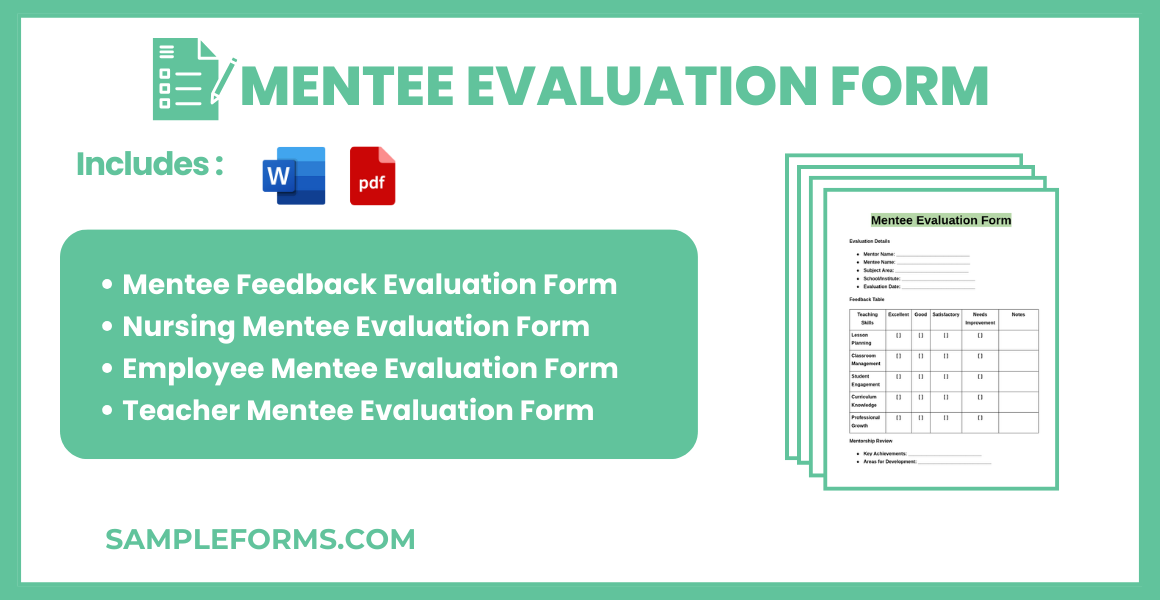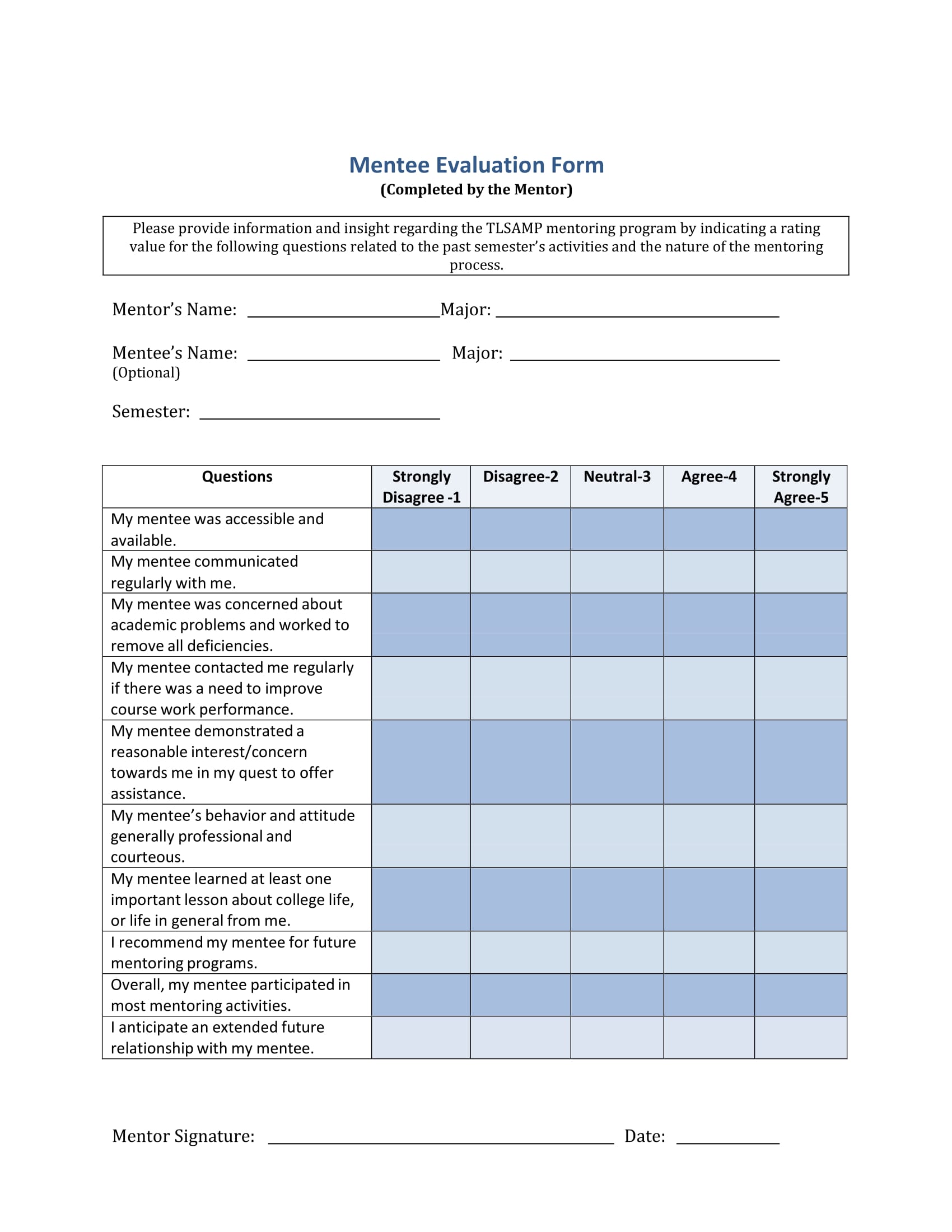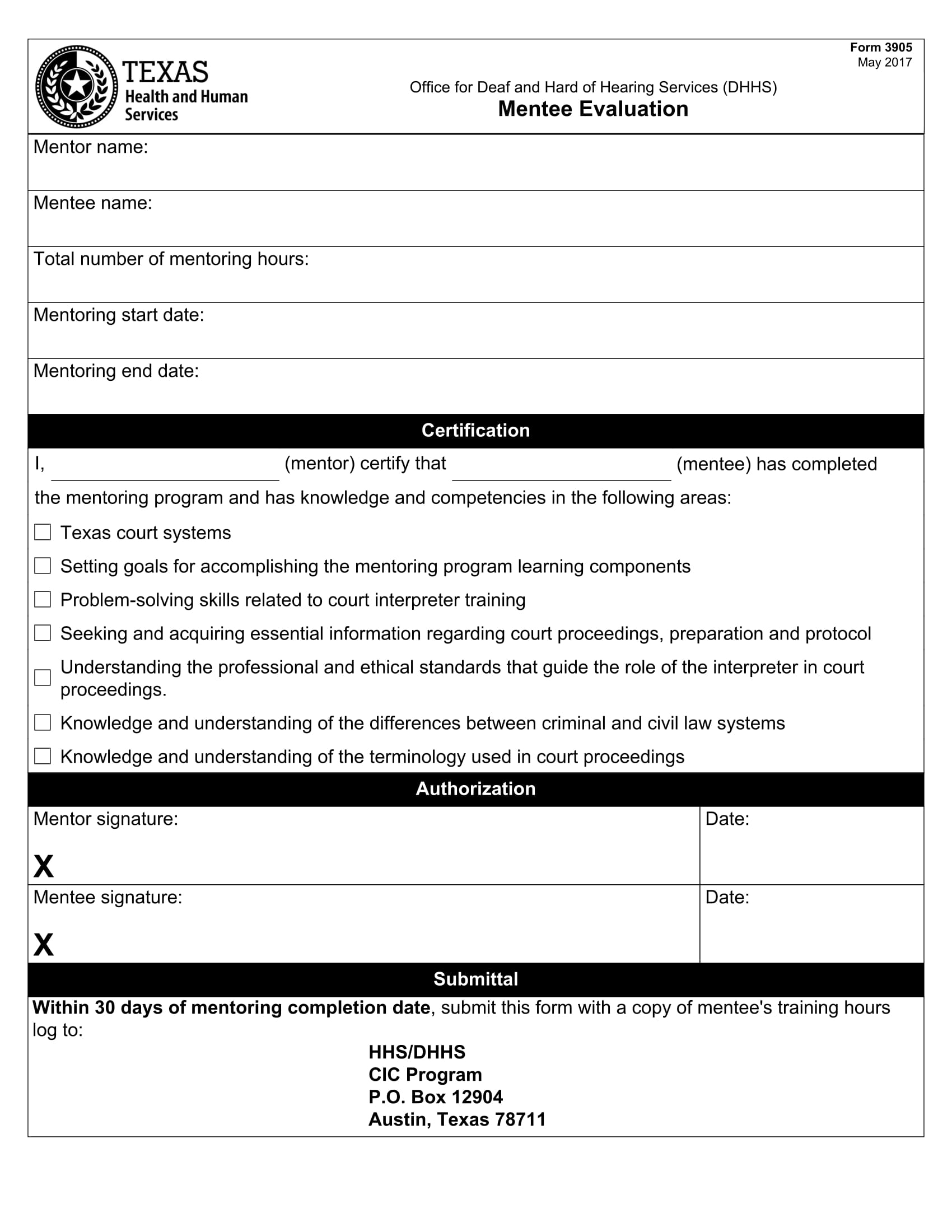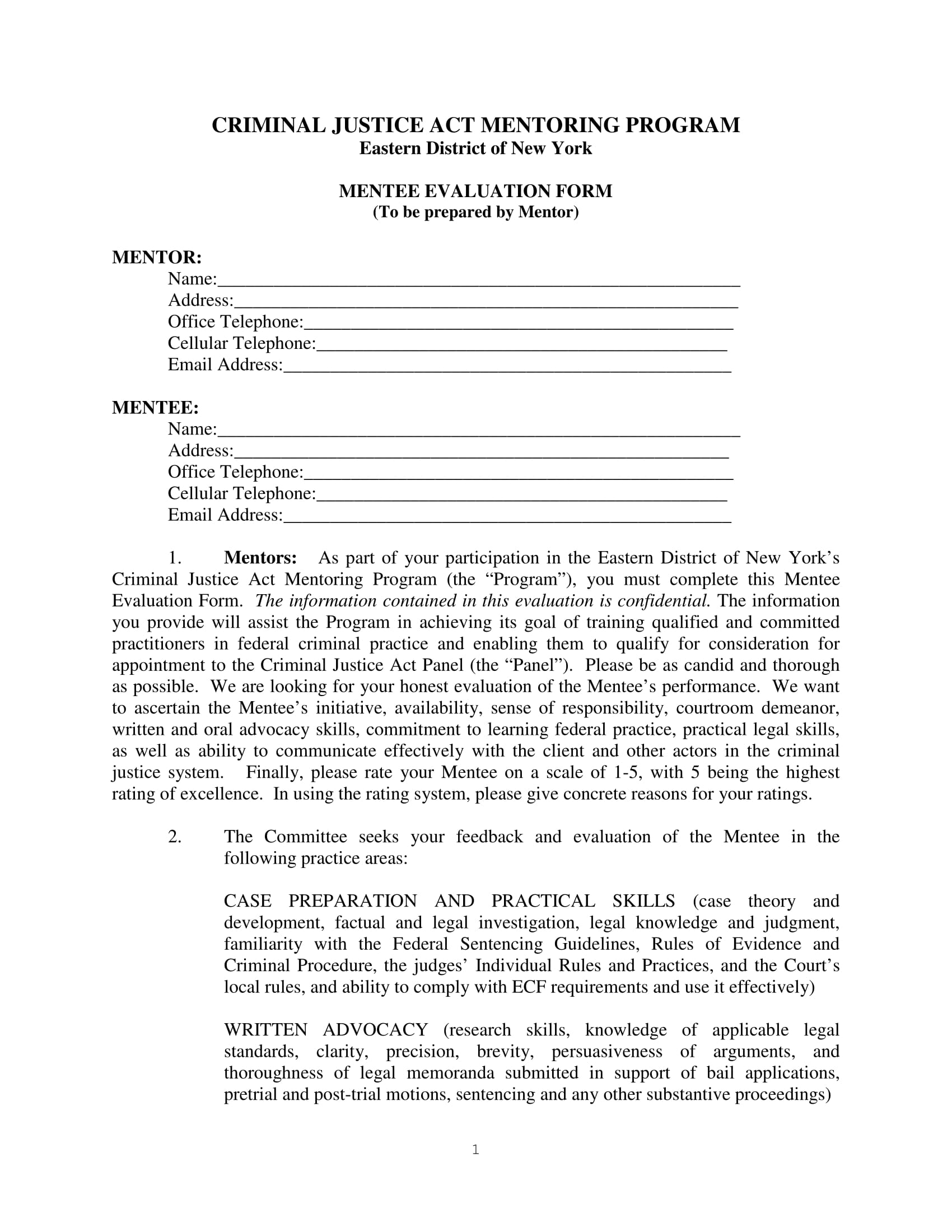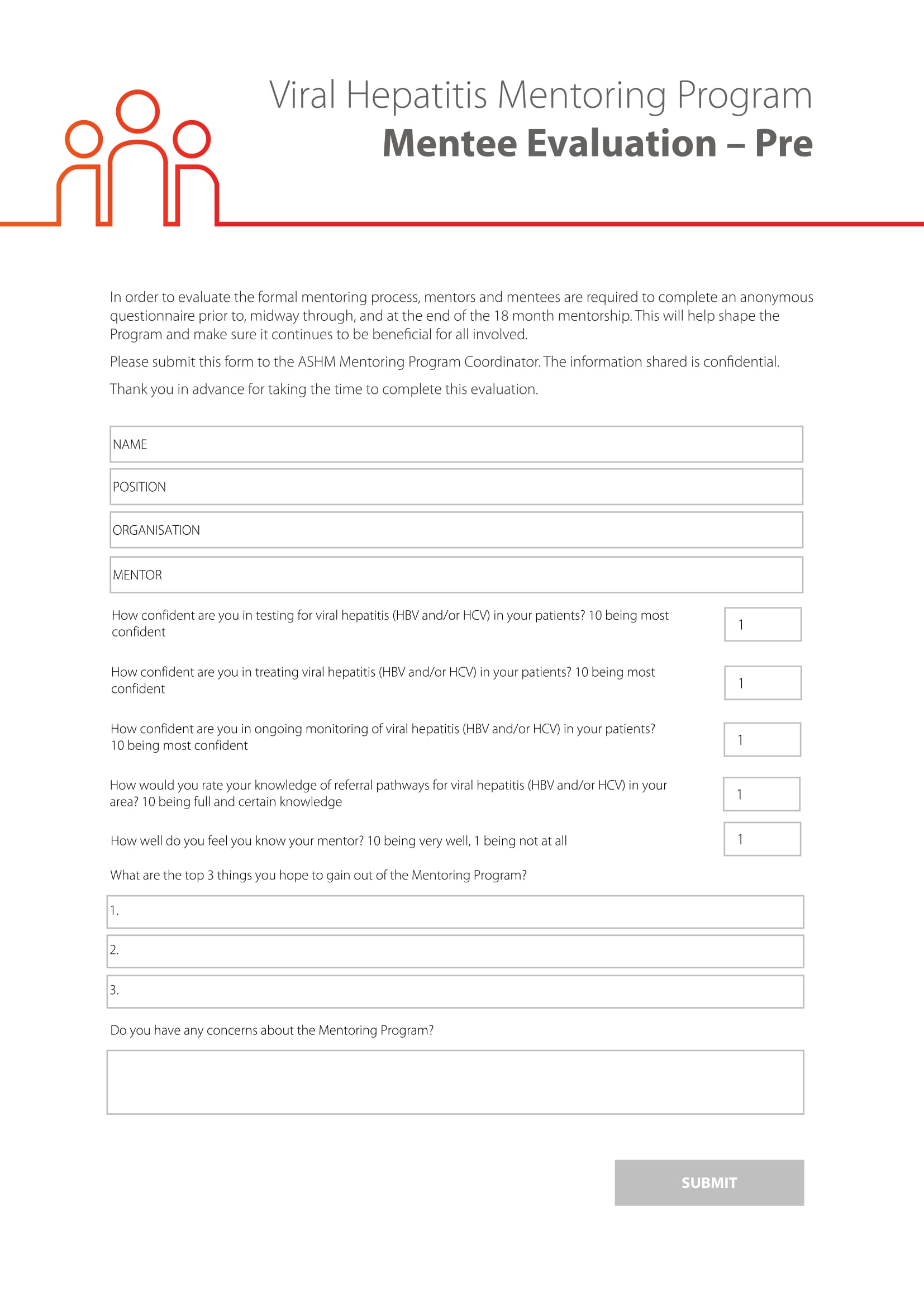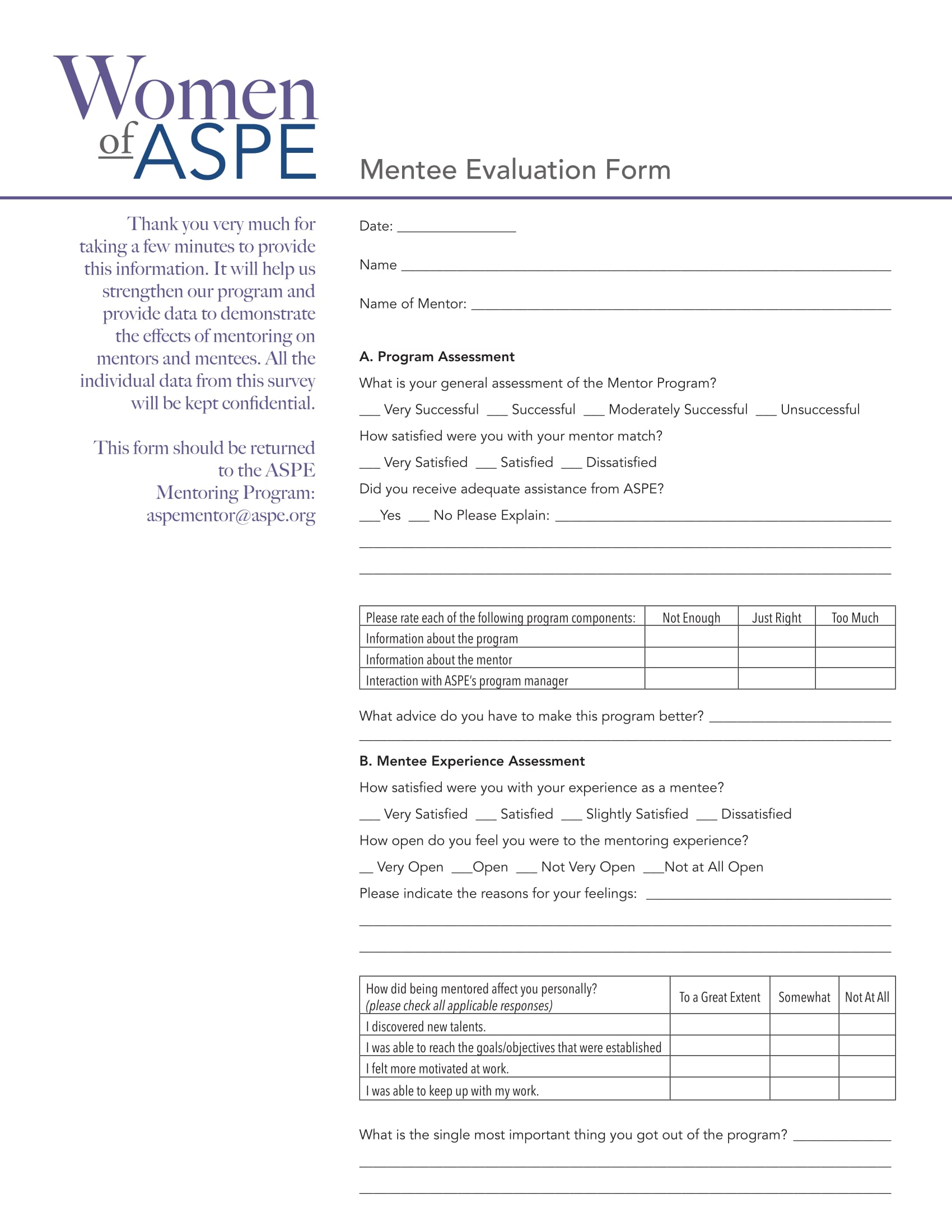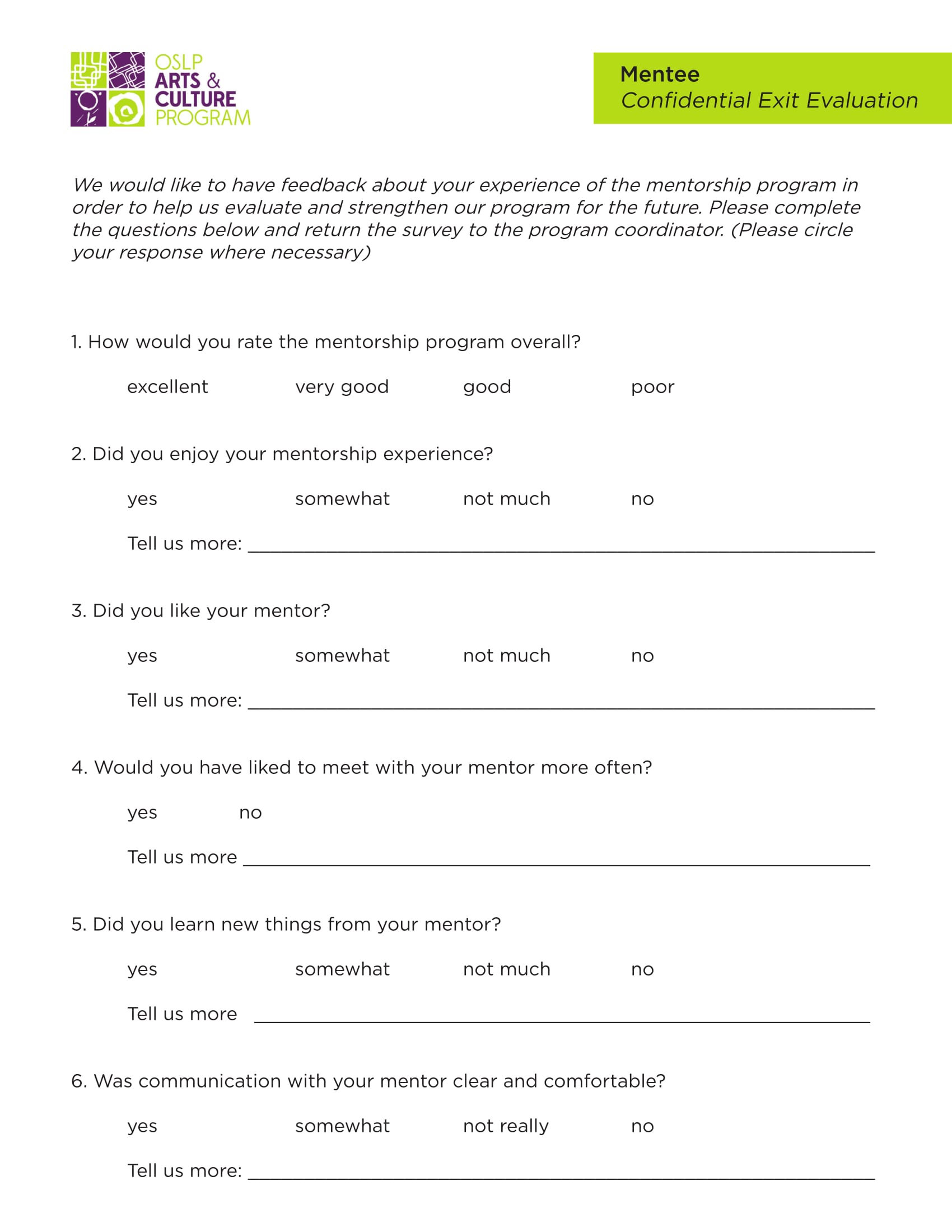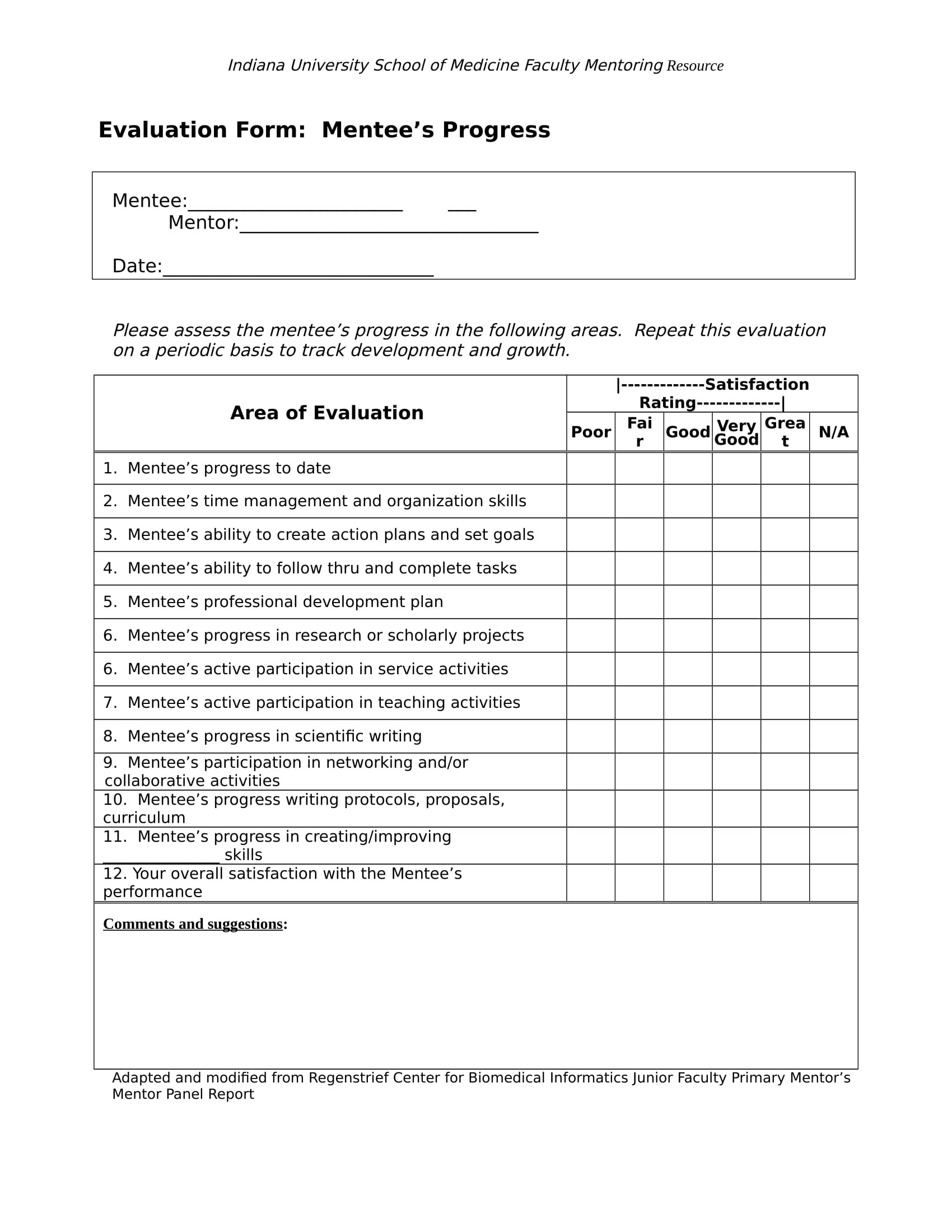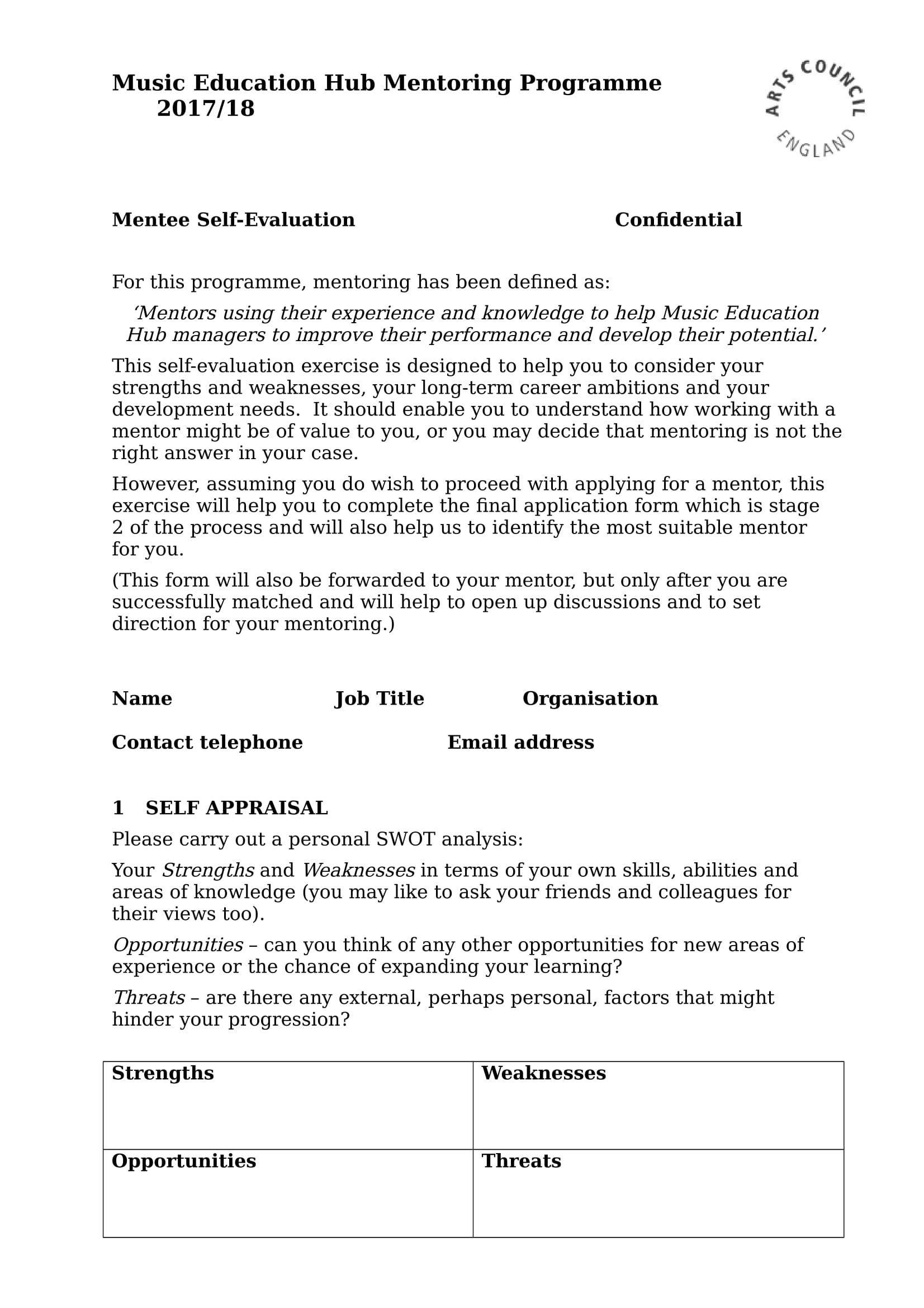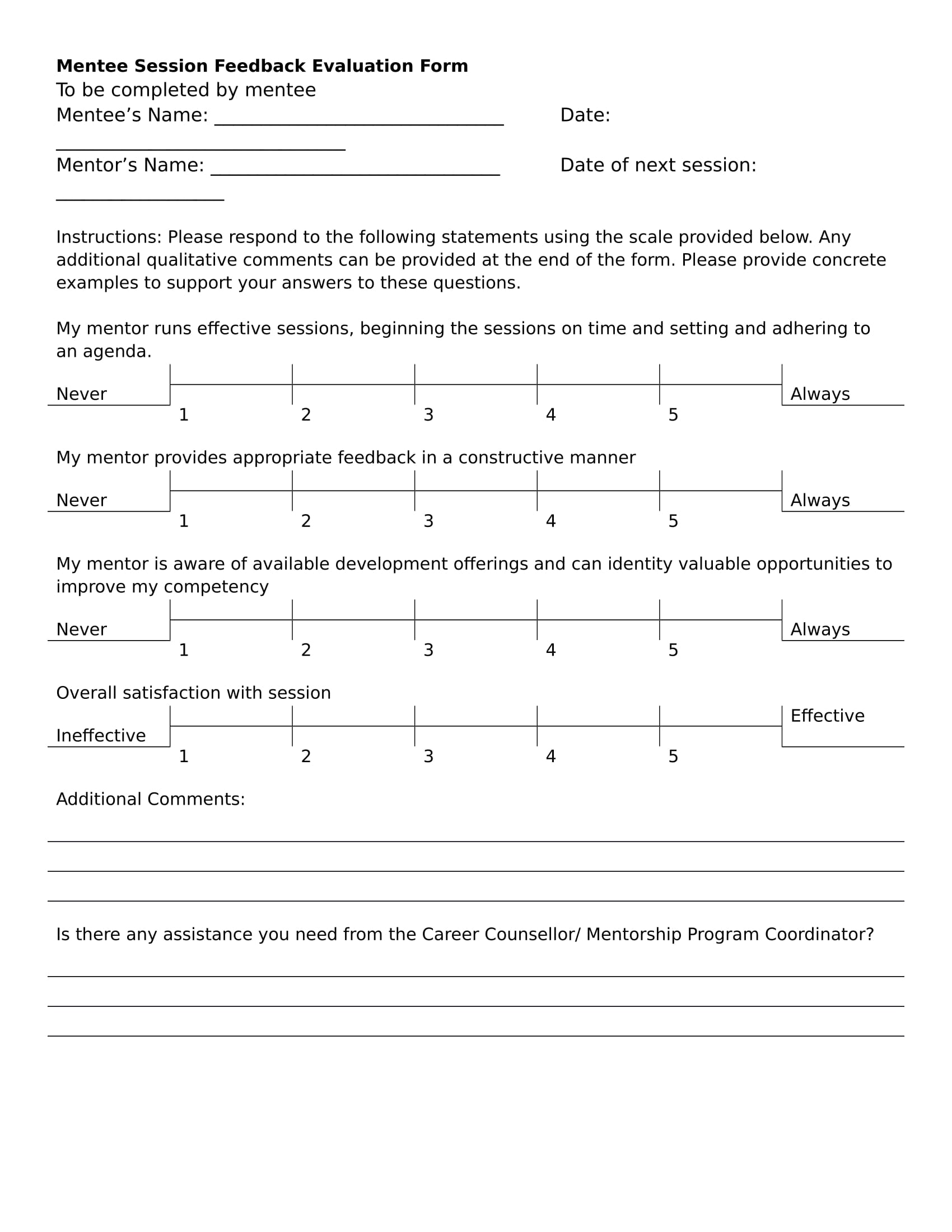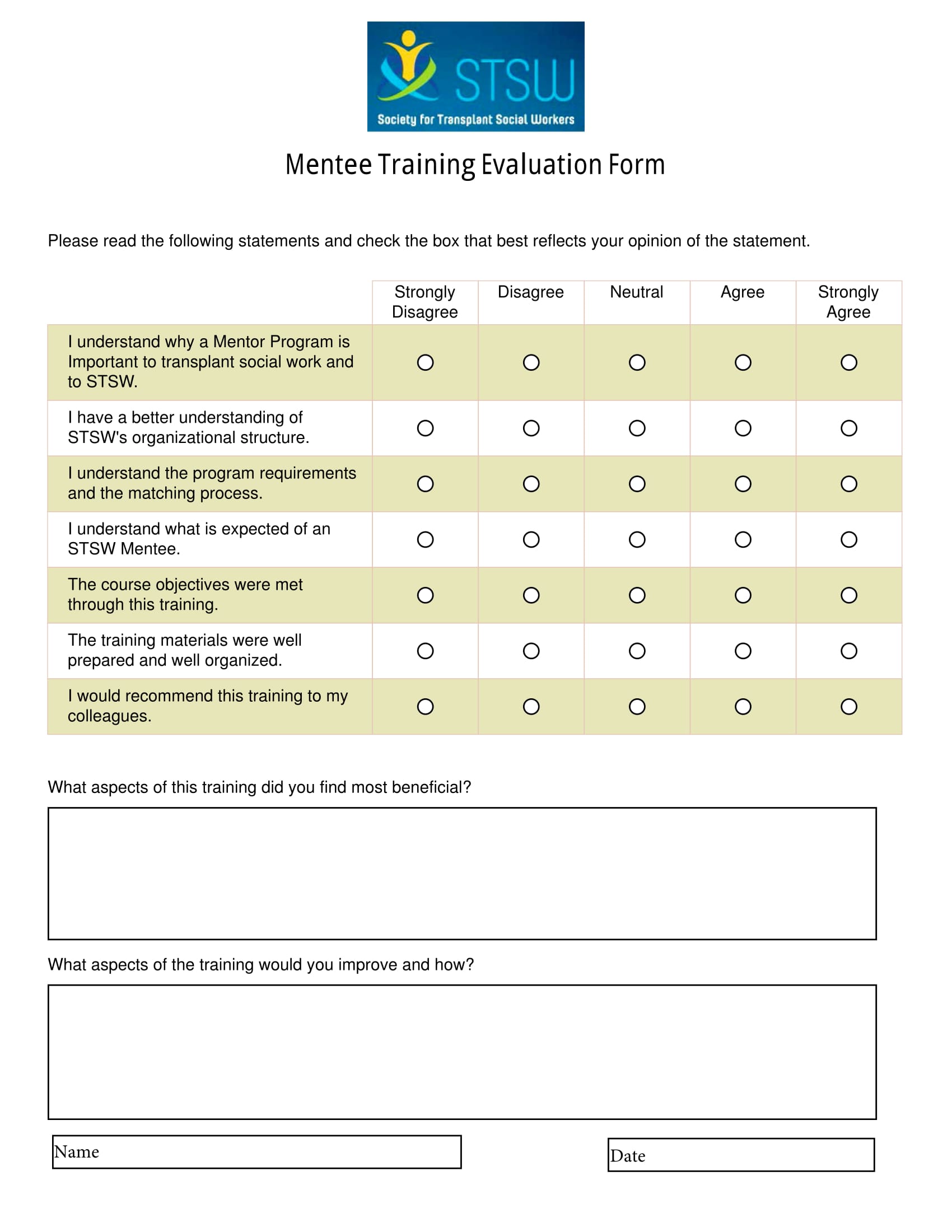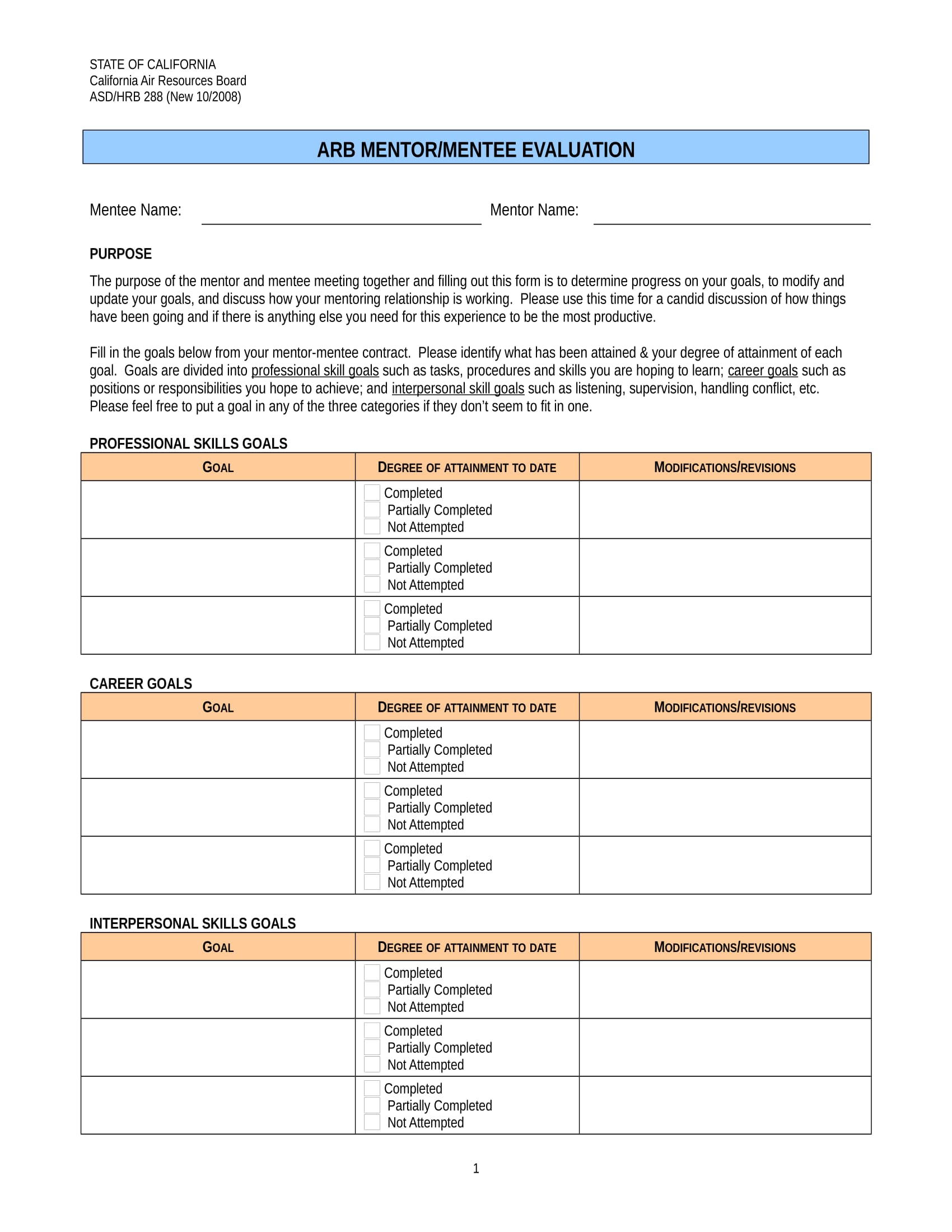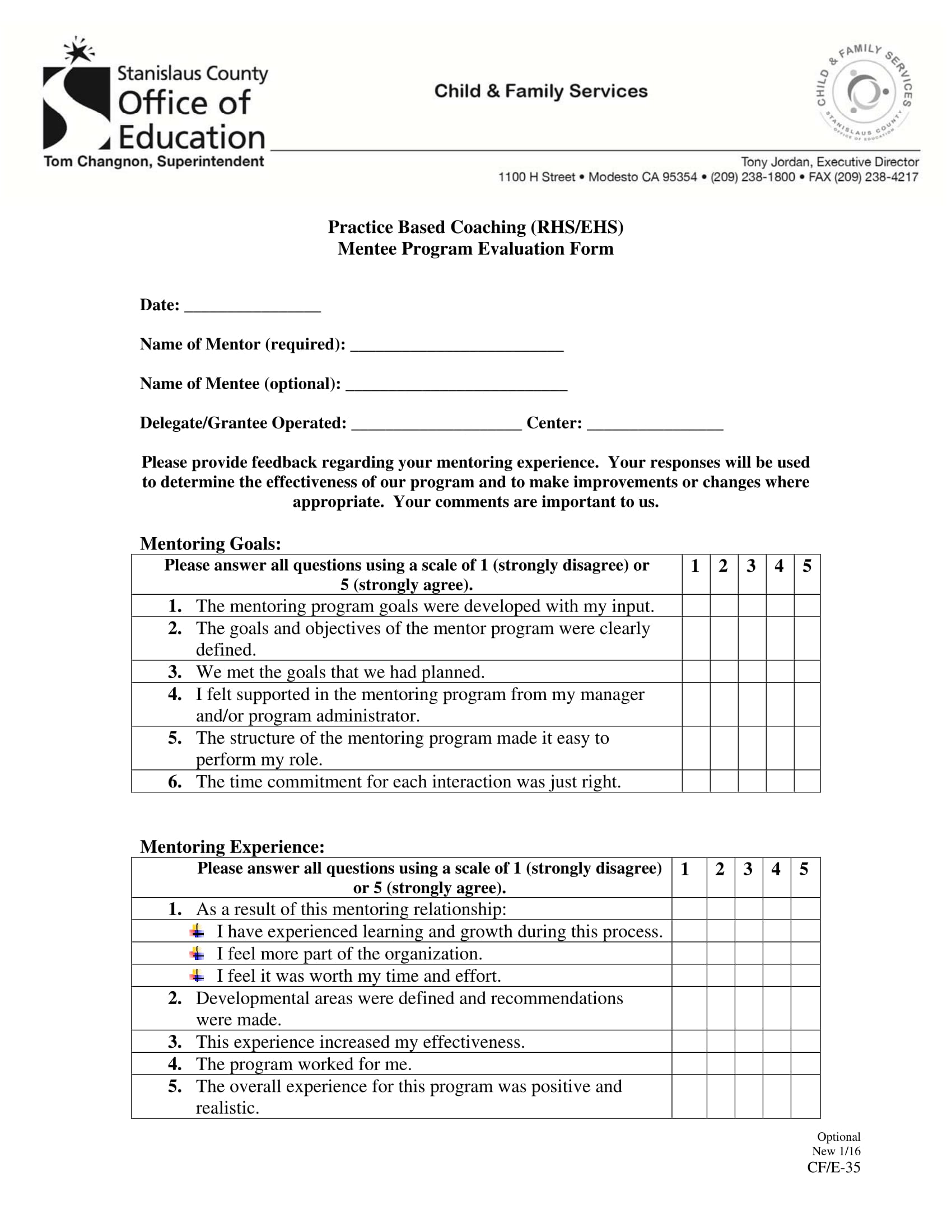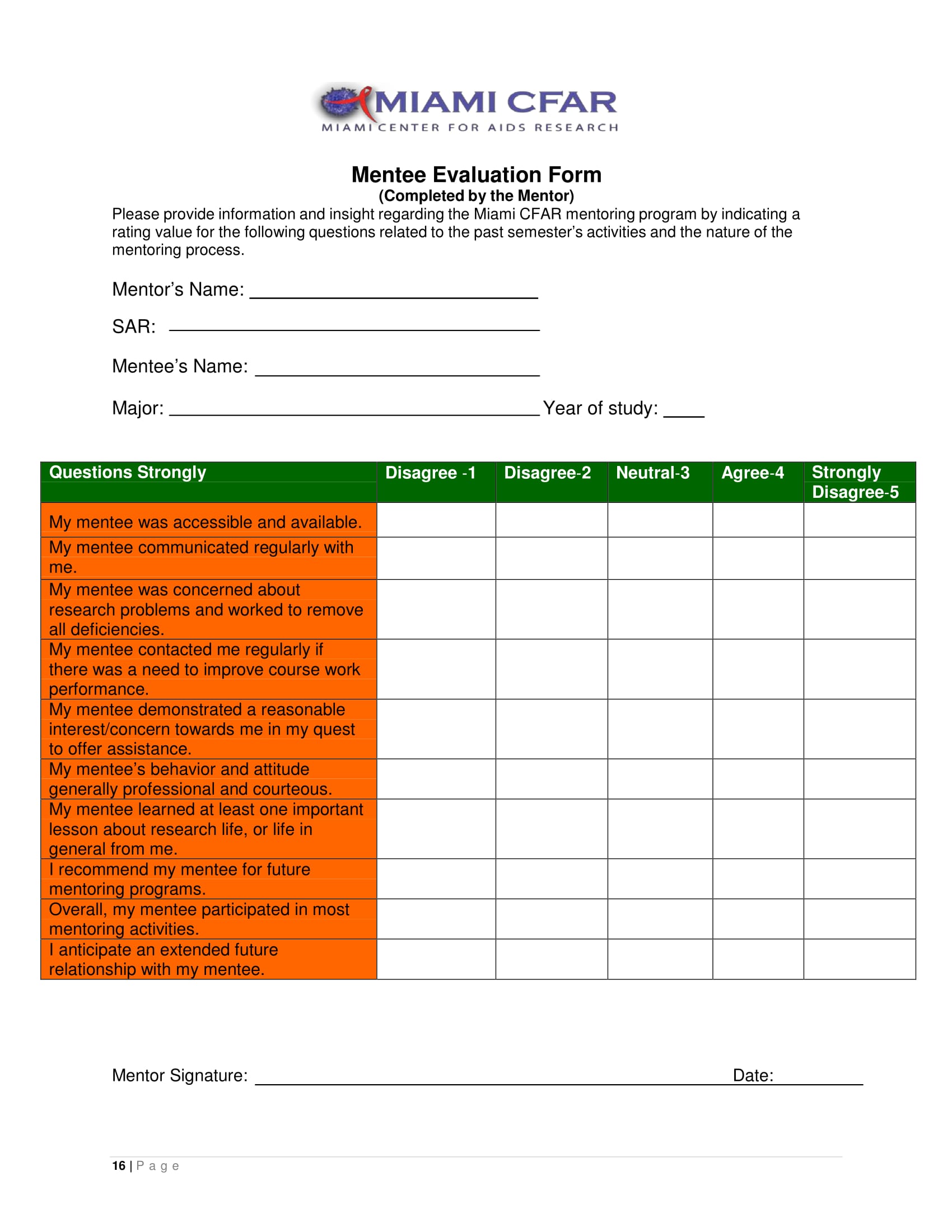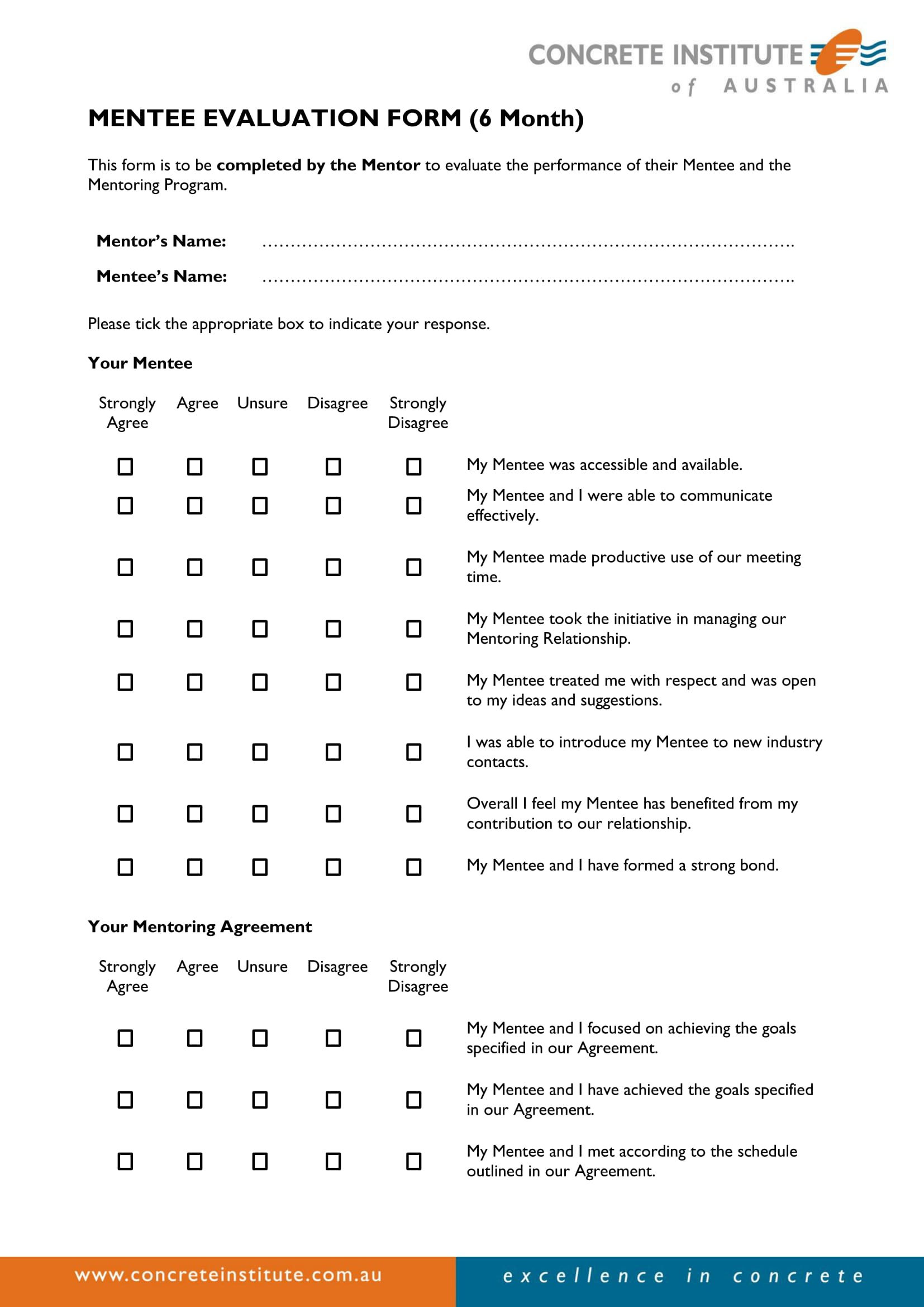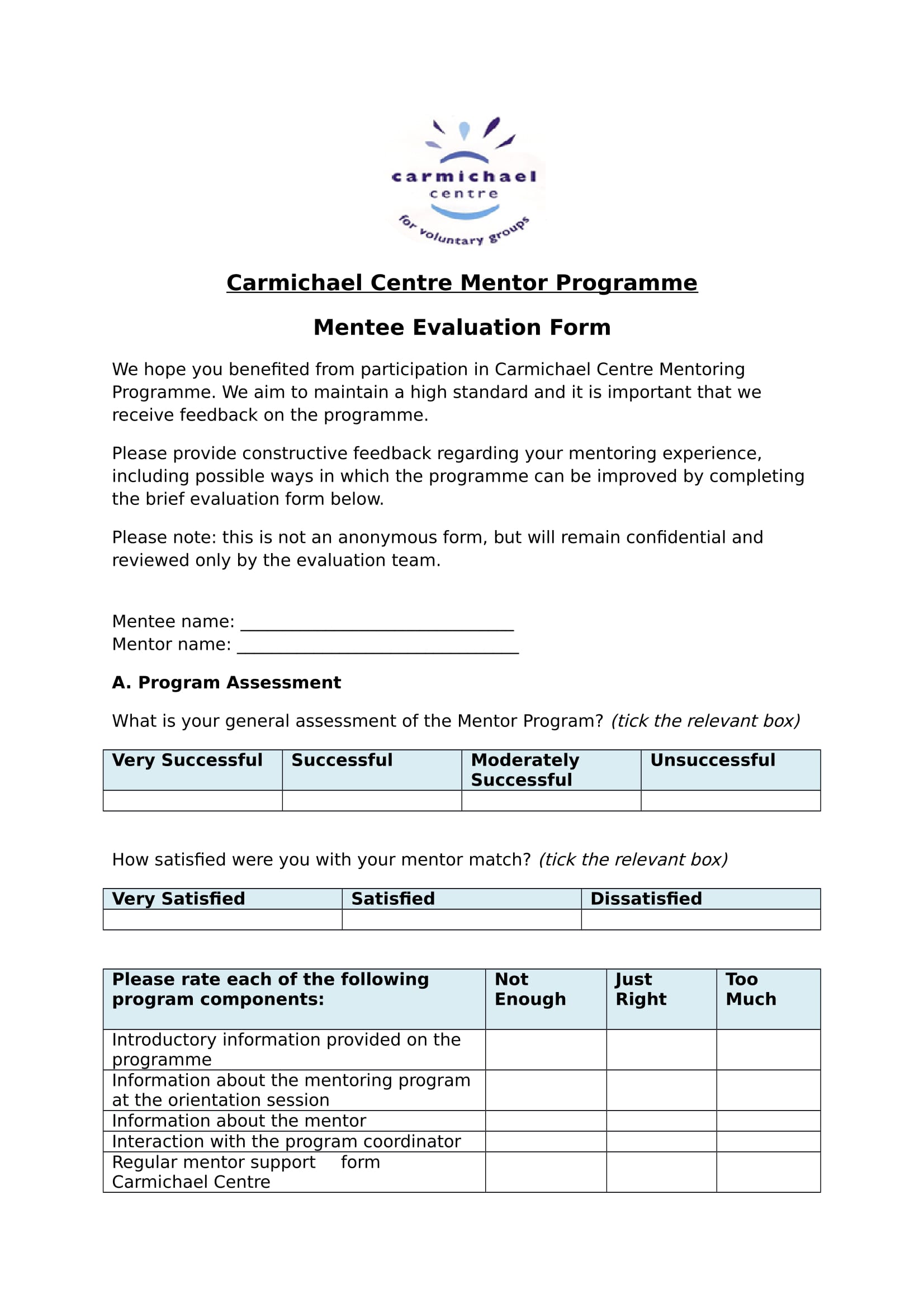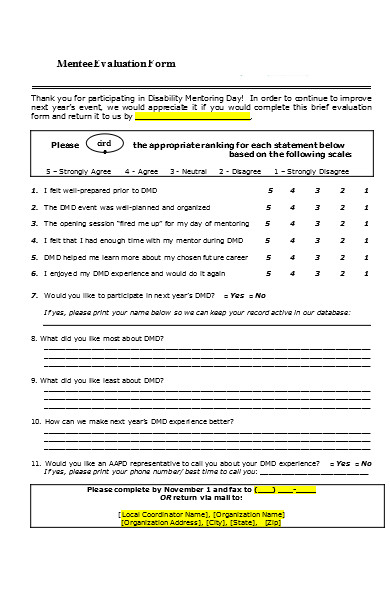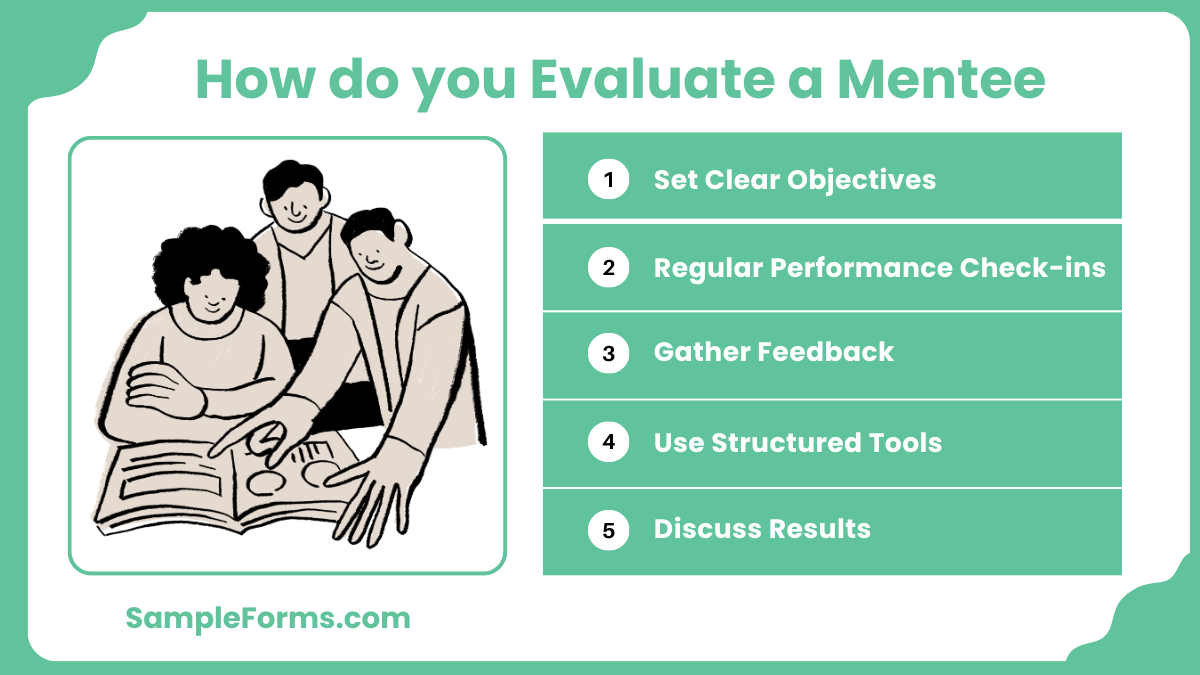The Mentee Evaluation Form is an essential tool for assessing mentorship programs. It helps gather feedback, evaluate progress, and refine mentorship practices. This guide delves into its significance, features, and usage, offering a practical perspective. Whether you’re an educator or professional mentor, understanding the intricacies of this Evaluation Form ensures impactful learning and growth. By providing structured questions and space for insights, it streamlines the evaluation process. From improving interpersonal dynamics to identifying strengths, this form transforms mentoring into a measurable and rewarding experience, aligning with long-term goals. Start creating meaningful mentor-mentee connections today with this detailed guide.
Download Mentee Evaluation Form Bundle
What is Mentee Evaluation Form?
The Mentee Evaluation Form is a structured document used to assess mentees’ progress, mentor effectiveness, and program outcomes. It promotes constructive feedback and measures development in academic, professional, or personal mentorship contexts. By addressing key evaluation criteria, this form ensures actionable insights for enhancing mentorship quality.
Mentee Evaluation Format
Evaluation Details
Mentee Name: ____________________________
Mentor Name: ____________________________
Evaluation Period: ____________________________
Performance Areas
Learning Goals Achieved: ____________________________
Skill Development: ____________________________
Engagement Level: ____________________________
Feedback Receptivity: ____________________________
Overall Assessment
Strengths: ____________________________
Areas for Improvement: ____________________________
Mentor Comments
Additional Remarks: ____________________________
Signature Section
Mentee Signature: ____________________________ Date: _______________
Mentor Signature: ____________________________ Date: _______________
Mentee Feedback Evaluation Form
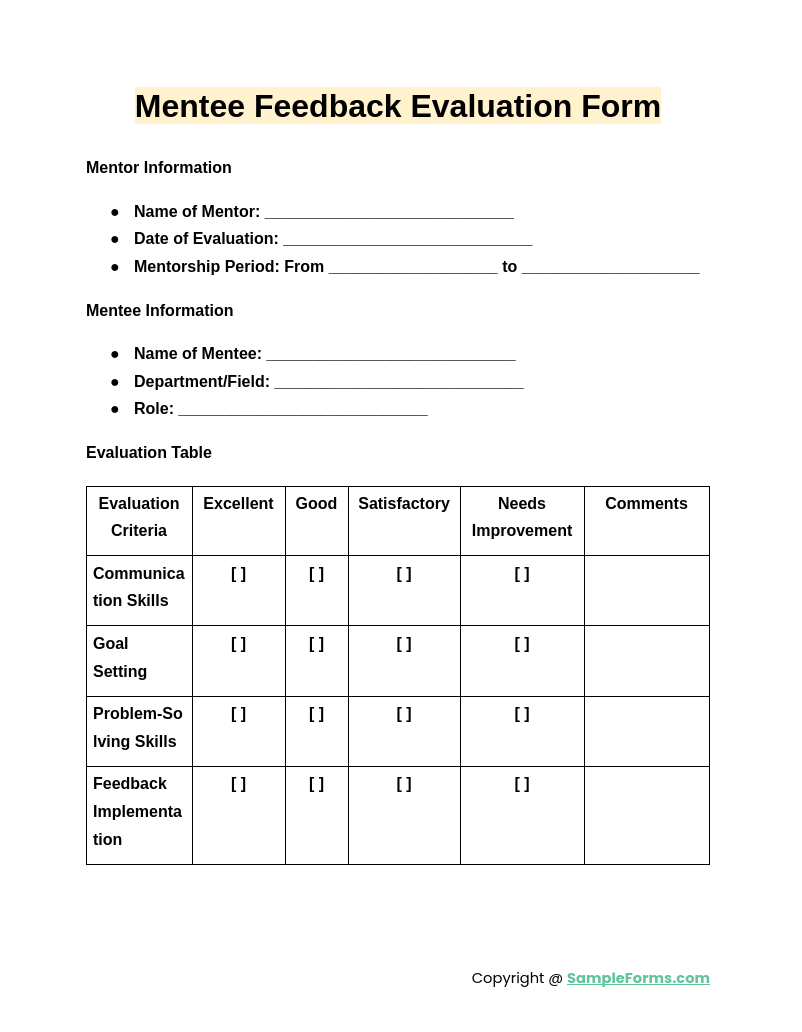
A Mentee Feedback Evaluation Form gathers mentee input on mentorship experiences. Similar to a Training Evaluation Form, it assesses program effectiveness, mentor communication, and overall mentee satisfaction. It ensures growth through constructive feedback and actionable insights.
Nursing Mentee Evaluation Form
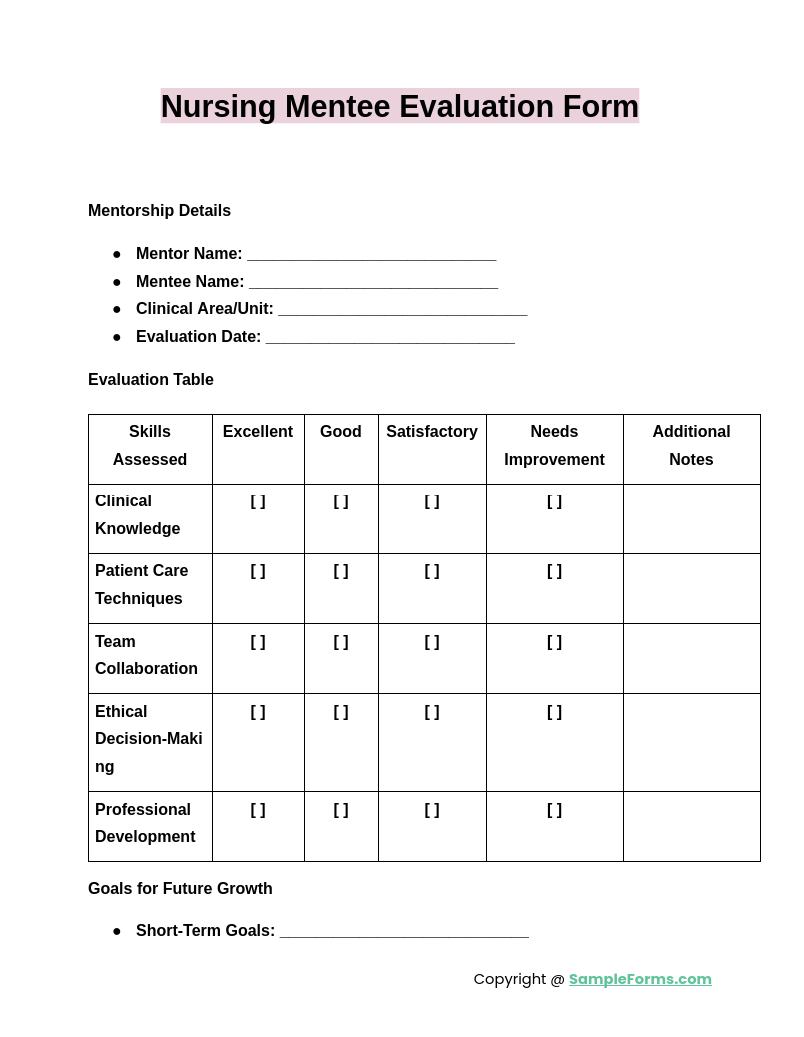
The Nursing Mentee Evaluation Form measures mentees’ clinical skills and learning progress. Like an Employee Self Evaluation Form, it promotes reflective learning, helping mentees identify strengths, areas of improvement, and progress toward nursing competencies and professional goals.
Employee Mentee Evaluation Form
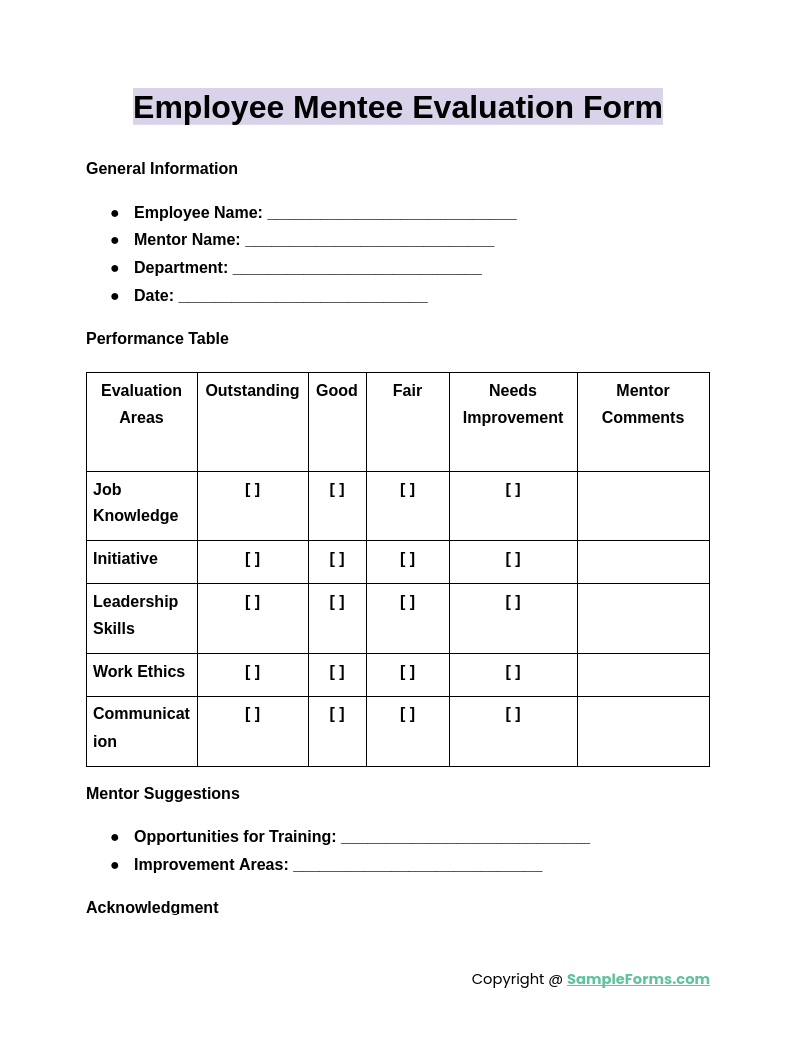
The Employee Mentee Evaluation Form tracks professional growth within workplace mentorships. Aligned with a Peer Evaluation Form, it evaluates collaboration, skill enhancement, and mentee-mentor communication, fostering effective development in employee mentorship programs.
Teacher Mentee Evaluation Form
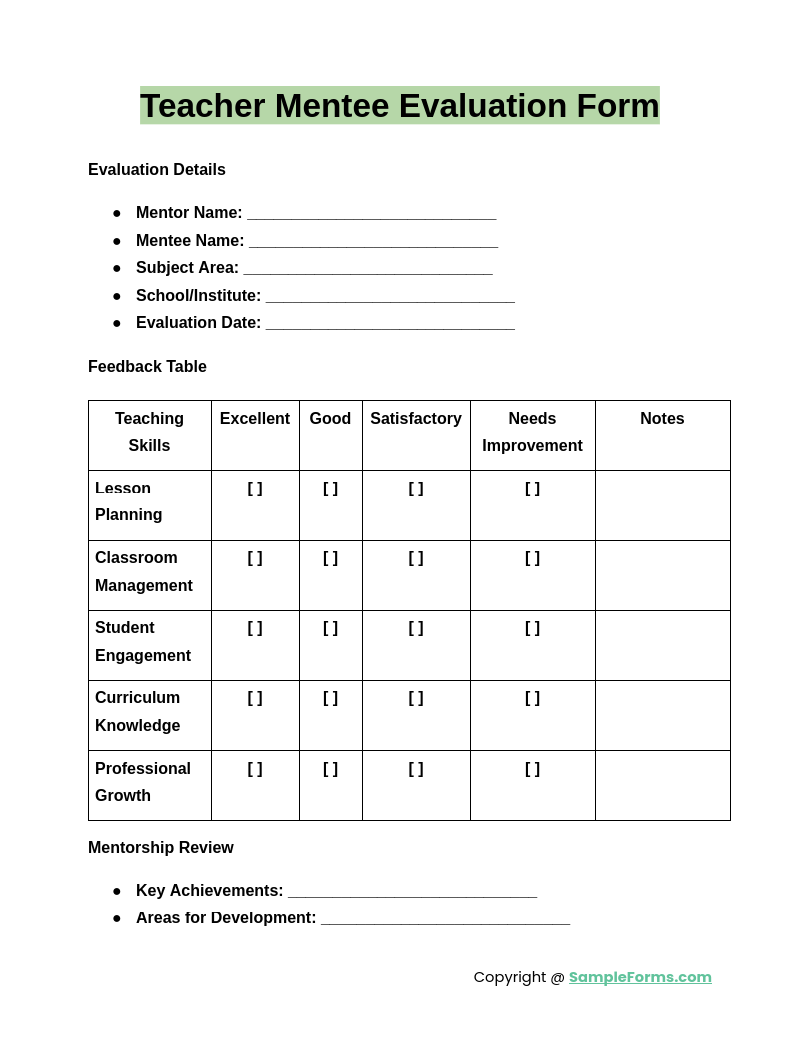
A Teacher Mentee Evaluation Form supports mentoring in education. Similar to an Employee Evaluation Form, it assesses teaching methods, mentorship impact, and mentee progress, ensuring effective knowledge transfer and professional growth in teaching roles.
Browse More Mentee Evaluation Forms
Mentee Evaluation Form Sample
Human Services Mentee Evaluation Form
Justice Program Mentee Evaluation Form
Medical Program Mentee Evaluation Form
Mentee Assessment Evaluation Form
Mentee Confidential Exit Evaluation Form
Mentee Progress Evaluation Form
Mentee Self-Evaluation Form
Mentee Session Feedback Evaluation Form
Mentee Training Evaluation Form
Mentor-Mentee Evaluation Form
Practice Coaching Mentee Evaluation Form
Research Mentee Evaluation Form
Semi-Annual Mentee Evaluation Form
Volunteer Mentee Evaluation Form
Basic Mentee Evaluation Form
How do you evaluate a mentee?
Evaluating a mentee requires assessing their progress, strengths, and areas for improvement. Similar to a Call Monitoring Evaluation Form, it ensures structured feedback and measurable outcomes.
- Set Clear Objectives: Define mentorship goals to track mentee progress effectively.
- Regular Performance Check-ins: Schedule consistent evaluations to review achievements and challenges.
- Gather Feedback: Collect insights from peers or other stakeholders to ensure a well-rounded assessment.
- Use Structured Tools: Utilize formal evaluation templates or systems for consistent results.
- Discuss Results: Provide constructive feedback and actionable steps for improvement.
How do you write feedback for a mentee?
Writing feedback for a mentee involves highlighting strengths and providing actionable suggestions. Aligned with an Interview Evaluation Form, it fosters clarity and supports mentee growth.
- Be Specific: Mention specific achievements or areas needing improvement.
- Focus on Strengths: Start with positive aspects to build confidence.
- Offer Solutions: Provide actionable suggestions to address weaknesses.
- Maintain Professional Tone: Ensure feedback is constructive and professional.
- Encourage Dialogue: Invite mentees to share their perspectives and goals.
What are the strengths of a mentee?
Mentees often exhibit strengths such as adaptability and eagerness to learn. Similar to evaluating a Presentation Evaluation Form, identifying these attributes aids effective mentoring.
- Eagerness to Learn: Demonstrates commitment to gaining new knowledge and skills.
- Adaptability: Adjusts to challenges and feedback for growth.
- Proactive Communication: Shares concerns or progress openly with mentors.
- Goal Orientation: Displays clear objectives and works diligently toward them.
- Collaborative Spirit: Works effectively with mentors and peers.
How do you write a recommendation for a mentee?
Writing a recommendation for a mentee highlights their potential and achievements. Comparable to a Food Sensory Evaluation Form, it provides a comprehensive analysis.
- Start with Introduction: Explain your relationship with the mentee and the context of your evaluation.
- Highlight Strengths: Mention specific skills or accomplishments that stand out.
- Provide Examples: Use real scenarios to validate the mentee’s abilities.
- State Potential: Emphasize how their skills align with future opportunities.
- Close with Endorsement: End on a positive note with a strong recommendation.
What are the 5 stages of mentoring?
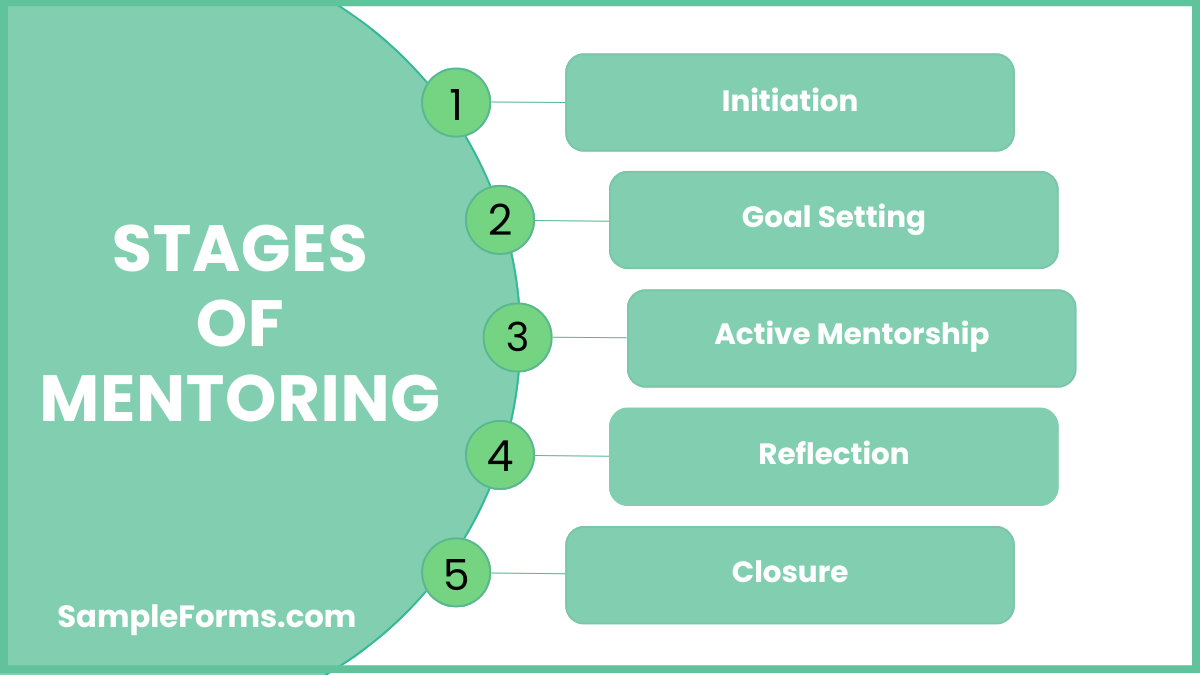
The five stages of mentoring ensure a structured relationship fostering development. Like a Speech Evaluation Form, they focus on progressive improvement.
- Initiation: Establish trust and set clear expectations.
- Goal Setting: Define objectives and desired outcomes.
- Active Mentorship: Engage in skill development and problem-solving.
- Reflection: Assess progress and address challenges.
- Closure: Celebrate achievements and outline future steps.
How do I track my mentee progress?
Tracking mentee progress involves regular evaluations, setting measurable goals, and using tools like a Mentor Evaluation Form to assess performance and development milestones effectively.
What should I expect from my mentee?
Expect a mentee to exhibit dedication, adaptability, and open communication. Similar to a Contractor Evaluation Form, accountability and commitment are essential for productive mentorship.
How do you motivate a mentee?
Motivate mentees by setting achievable goals, providing positive reinforcement, and offering guidance tailored to their strengths. Feedback through a Supplier Evaluation Form approach ensures clarity and encouragement.
What are the weaknesses of a mentee?
Common weaknesses include lack of confidence, poor communication, or inconsistent effort. Using insights from a Nurse Evaluation Form can help identify and address these challenges.
How do you compliment a mentee?
Compliment a mentee by acknowledging their achievements, effort, and improvements. Like a Debate Evaluation Form, focus on constructive praise that reinforces their progress and builds confidence.
What makes an effective mentee?
An effective mentee demonstrates eagerness to learn, proactive communication, and adaptability. Attributes highlighted in an Internship Evaluation Form often correlate with successful mentees.
What are the characteristics of a bad mentee?
A bad mentee may resist feedback, lack initiative, or display inconsistency. A Food Evaluation Form analogy highlights areas needing improvement for better outcomes.
What are the best quotes for mentees?
Inspiring quotes like “Learning never exhausts the mind” can encourage mentees to persevere, much like feedback in a Course Evaluation Form nurtures growth.
How do you encourage mentees?
Encourage mentees by recognizing their progress, setting SMART goals, and offering constructive support. Strategies from an Employee Performance Evaluation Form help sustain motivation and growth.
What is a smart goal for a mentee?
A SMART goal is specific, measurable, achievable, relevant, and time-bound. Effective planning mirrors the precision seen in a Sensory Evaluation Form process.
The Mentee Evaluation Form is a cornerstone for fostering successful mentorships. It ensures continuous growth and alignment of goals between mentor and mentee. Utilizing tools like the Product Evaluation Form, mentors gain structured feedback to improve guidance quality. By facilitating open communication and measurable progress tracking, this form empowers mentoring relationships to thrive in any context, reinforcing long-term success and impactful learning journeys.
Related Posts
-
FREE 6+ Business Credit Checklist Forms in PDF
-
Employee Pay Increase Form
-
Chef Evaluation Form
-
FREE 8+ Kitchen Evaluation Forms in PDF | MS Word
-
Customer Service Evaluation Form
-
FREE 15+ Grant Evaluation Forms in PDF | MS Word
-
FREE 14+ Volunteer Evaluation Forms in PDF
-
Speaker Evaluation Form
-
FREE 14+ Vehicle Evaluation Forms in PDF
-
FREE 14+ Trainee Evaluation Forms in MS Word | PDF
-
Resume Evaluation Form
-
Debate Evaluation Form
-
FREE 14+ Retreat Evaluation Forms in PDF
-
FREE 14+ Book Evaluation Forms in PDF | MS Word
-
Food Evaluation Form
